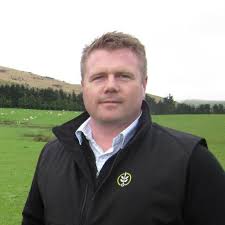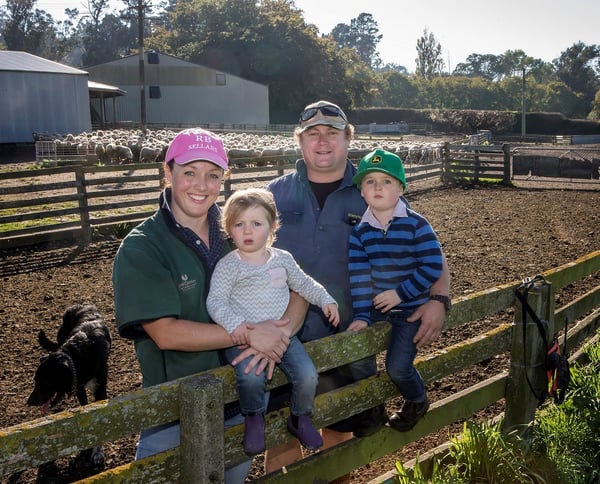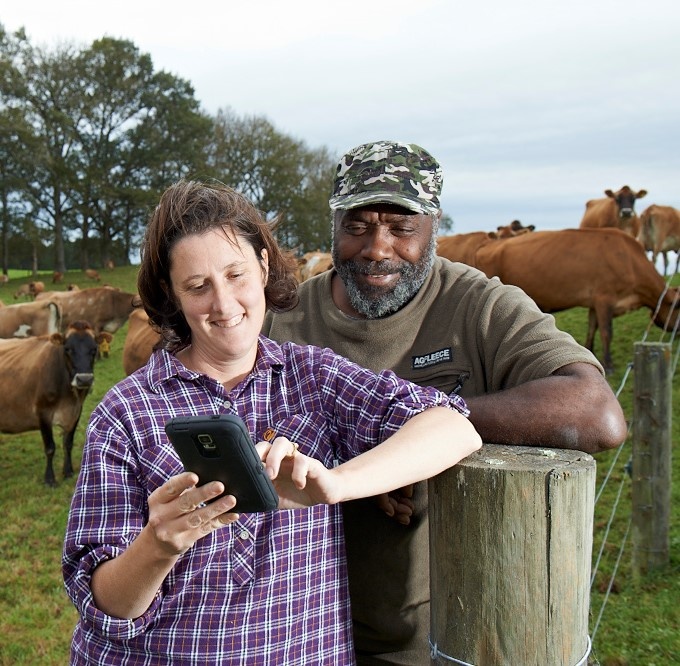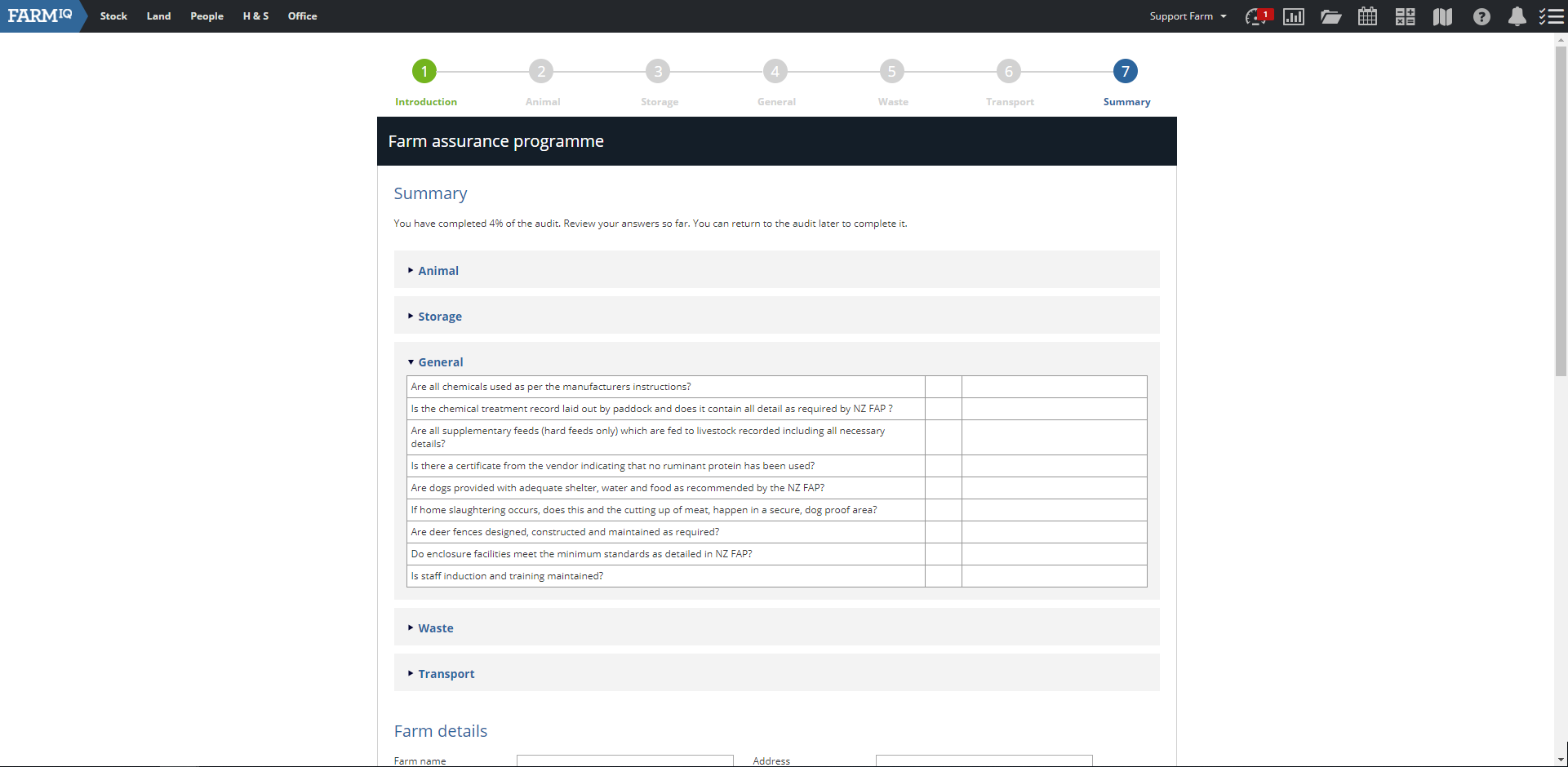

The Douglas-Clifford family believe in building their farm asset over time – and that now includes using farm software to build an online farm record.
The family, who were recently named winners of the Canterbury Ballance Farm Environment Award, run 22,000 stock units of sheep, beef and deer on 3000ha Stonyhurst on the coast south of Cheviot.
Charles Douglas-Clifford returned home with his wife Erin five years ago and has overseen the day-to-day farm management of Stonyhurst since then. He is the sixth generation on the property. The family chose a good spot – the long, narrow farm has rolling hills going down to coastal cliffs and they look out across Pegasus Bay.
THE RIGHT THING
Charles says sustainability comes naturally in family farming. Through the generations the Douglas-Cliffords have purposefully built a farm asset that supports them and that they can be proud of. “It’s doing the right thing. It is not about how someone else would judge you.
“This award acknowledges many generations of work. There was a lot done before my time, or before my dad John and his brother Peter’s time. Each generation has come and put their stamp on things. There’s been a lot of pride in the farm, what we do and our products. It’s not something new.”
Often doing the right thing economically, socially and environmentally adds up to the same thing, he points out. He became aware of this last year when using an online template for a farm environment plan. “A lot of the things that have environmental benefits we’ve done for farm management reasons. For example, we’ve fenced off areas of bush and gullies to simplify animal movements and make mustering easier. That has saved time – and time is money. A lot of that was done 80 to 100 years ago.”
Another focus over many years has been soil and moisture conservation. “My dad and Peter shifted to direct drilling not long after they started managing the farm nearly 40 years ago.”
GOOD RECORD KEEPING
Part of Charles’ stamp on the place is the use of information technology. Keeping good records has always been a focus, but now he has taken it online. The farm team, including five staff as well as family members, are using a phone app to record as they go. The information being recorded online ranges from animal health treatments and fertiliser applications to the farm hazard register.
On a farm this size there are “always plenty of projects on the go”. Charles is using the online records for decision-making and to build a good farm history all in one place. It also helps with day-to-day communication.
It’s important that doing the recording is simple, says Charles. “The more stuff that’s one click, the better. It’s got to be practical and there’s got to be value in the reporting you get. I organise things so that we are getting consistent and accurate recording. We’re taking small steps. Once everyone is comfortable with recording something and it has become second nature, then we can do more. It’s like a lot of things, you make that initial commitment to get to know how to use it and then you get the benefit.
“Animal health is one that is so quick and easy. You do it while you are at the yards, while you’ve got the drum of drench in front of you. It is best done immediately when you have it all there, rather than at home at night.
“I was talking to our vets recently. I want to get the salesperson on to our farm software as a third-party user. At the moment she sends the batch numbers and expiry dates by email. It would be good to get her to load that straight in to the farm inventory.
“For something like that, when you’ve got multiple people involved in using products, the farm inventory is really advantageous. It helps prevent mis-communication and crossovers. For example, when you go to order you can quickly see how much is there.”
Stonyhurst currently has no regulatory requirements for environment planning. “All the work we do on that is voluntary. We have found that generally we were doing things that were in the best interest of the land, but it has probably made us a bit more aware. It makes you think about things.”
You can learn more about environmental planning by watching this Ask Libby webinar.


